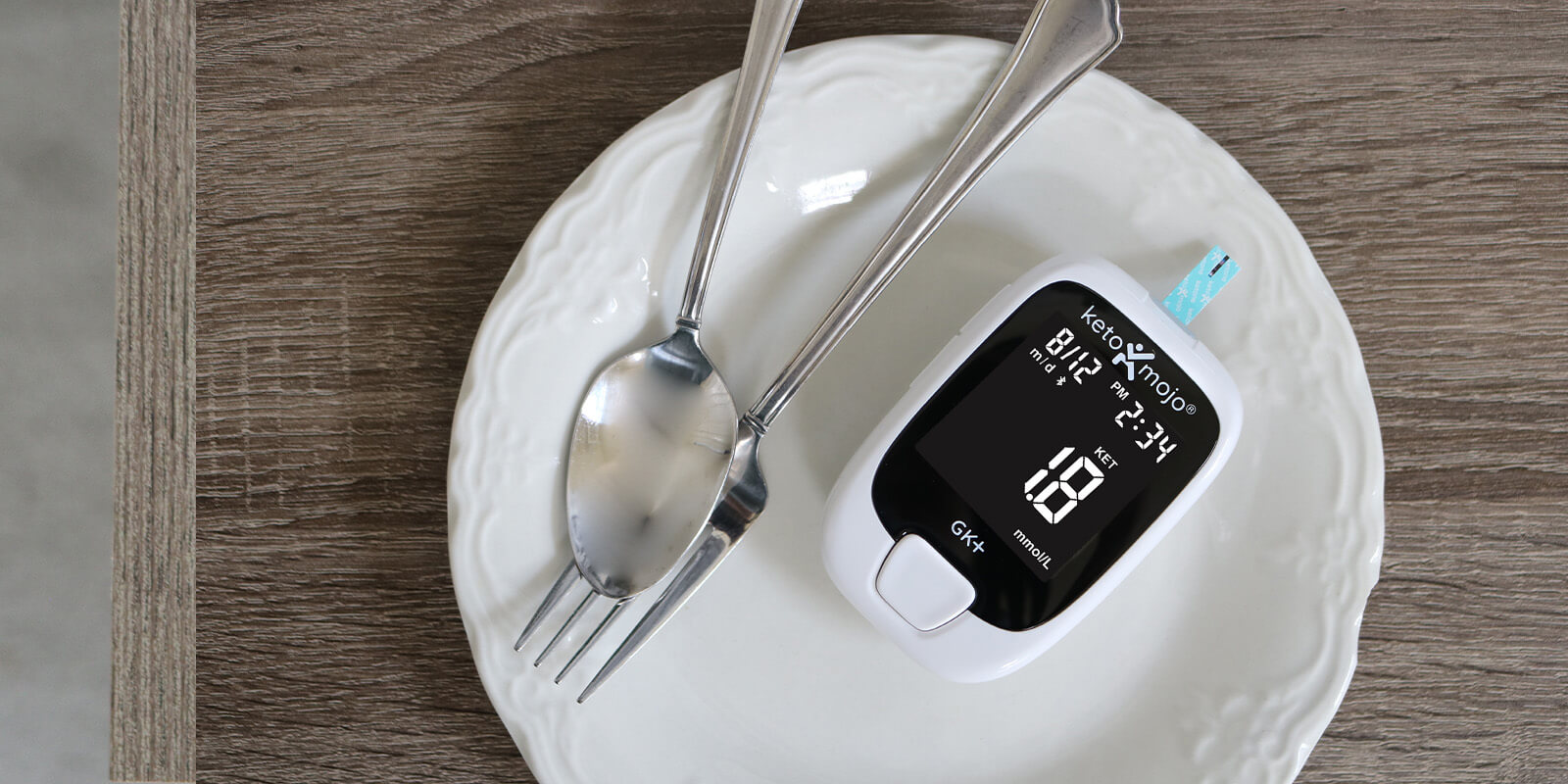Testing before you ingest anything but after you’ve been awake awhile helps you avoid the “dawn effect” (an early-morning increase in blood sugar/glucose caused by a natural rise in cortisol before you wake). In the morning, glucose will generally be higher and ketones are generally at their lowest. You can learn more about the dawn effect here.
A fasted test result will give you a good baseline to compare over time. But just how long to wait after you’ve risen may depend on your metabolic state or condition. For someone without insulin resistance, testing an hour after waking will generally provide a good fasted baseline. But for someone who is insulin resistant, which causes elevated levels of glucose in the blood, it may be better to wait 2-3 hours for your fasted baseline, giving your body more time to adjust to the cortisol spike. The best way to determine the ideal time for you is by testing your glucose consecutive days at the same intervals after waking: 1 hour, 2 hours, 3 hours. This will help you understand how long it takes for your glucose to level out.
If your ketones are 1 mmol/L or higher during your anticipated lowest levels of the day, that’s good news; it means you are most likely in a deep state of ketosis!






